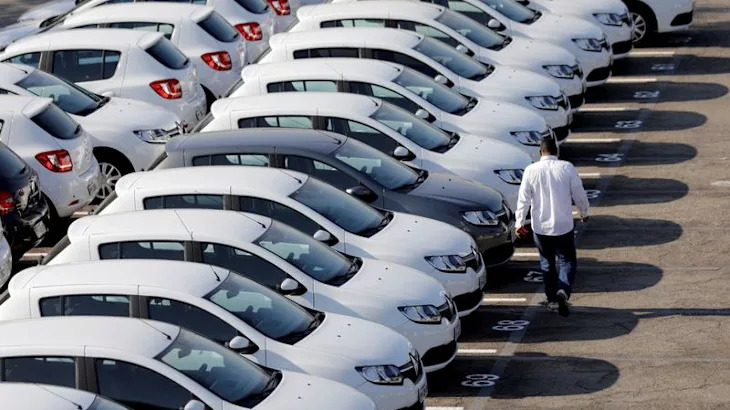
Analysis-Brazil auto market offers warning for US tariff policy
By Luciana Magalhaes and Alberto Alerigi Jr
SAO PAULO (Reuters) - When Brazil hiked trade barriers in its auto market over a decade ago, the government promised more local manufacturing, reliable jobs and better cars.
Instead, carmakers opened and then shuttered factories, ultimately shedding jobs and slashing production. Brazilians routinely pay 50% more for the same models as regional peers today, with technologies often lagging behind global markets.
As the U.S. auto industry confronts major tariffs imposed by President Donald Trump, executives and analysts are drawing parallels with Brazil, once the world's fourth-largest auto market and now a case study in the dangers of protectionism.
Philipp Schiemer, former head of Mercedes-Benz in Brazil and Latin America, learned some of those lessons the hard way as he opened a plant in Sao Paulo making luxury cars, which was shut down in 2020.
"I think Brazil is a good example of how to assess the impact of protectionist policies," said Schiemer, who now works at advisory firm Mirow & Co and warned of the inefficiencies caused by tariffs. "Protected markets tend to lag behind."
With Brazil's economy running hot in 2011 and its currency firming, a surge in vehicle imports spooked the ruling Workers Party, which has longstanding ties to autoworkers' unions.
Then-President Dilma Rousseff hiked taxes by 30 percentage points on a range of foreign cars and halved taxes on locally made vehicles, while demanding a freeze on industry job cuts.
Those policies, combined with local content rules in a 2012 law, marked the most protectionist shift in Brazil's auto industry since it began to open in the 1990s.
Imports abated and local production rose briefly to a record 3.71 million vehicles in 2013. Faced with a choice between ceding market share or building new factories in Brazil, several carmakers chose to open local assembly lines, including Mercedes-Benz.
But many struggled to reproduce the efficiency of their supply chains overseas. As inflation mounted and the economy cooled, domestic demand sputtered. But few Brazilian plants were competitive enough on costs to ramp up exports to other markets.
Mercedes-Benz soon threw in the towel, shutting down its only Brazil car plant after four years. A year later, Ford Motor closed its last local factory after a century in the country.
Brazil's auto industry produced 2.55 million vehicles last year, still down a third from its 2013 peak. Employment in the sector has fallen about 20% in the same period.